Behind the Sunday Mirror – Kids Grow for Gold
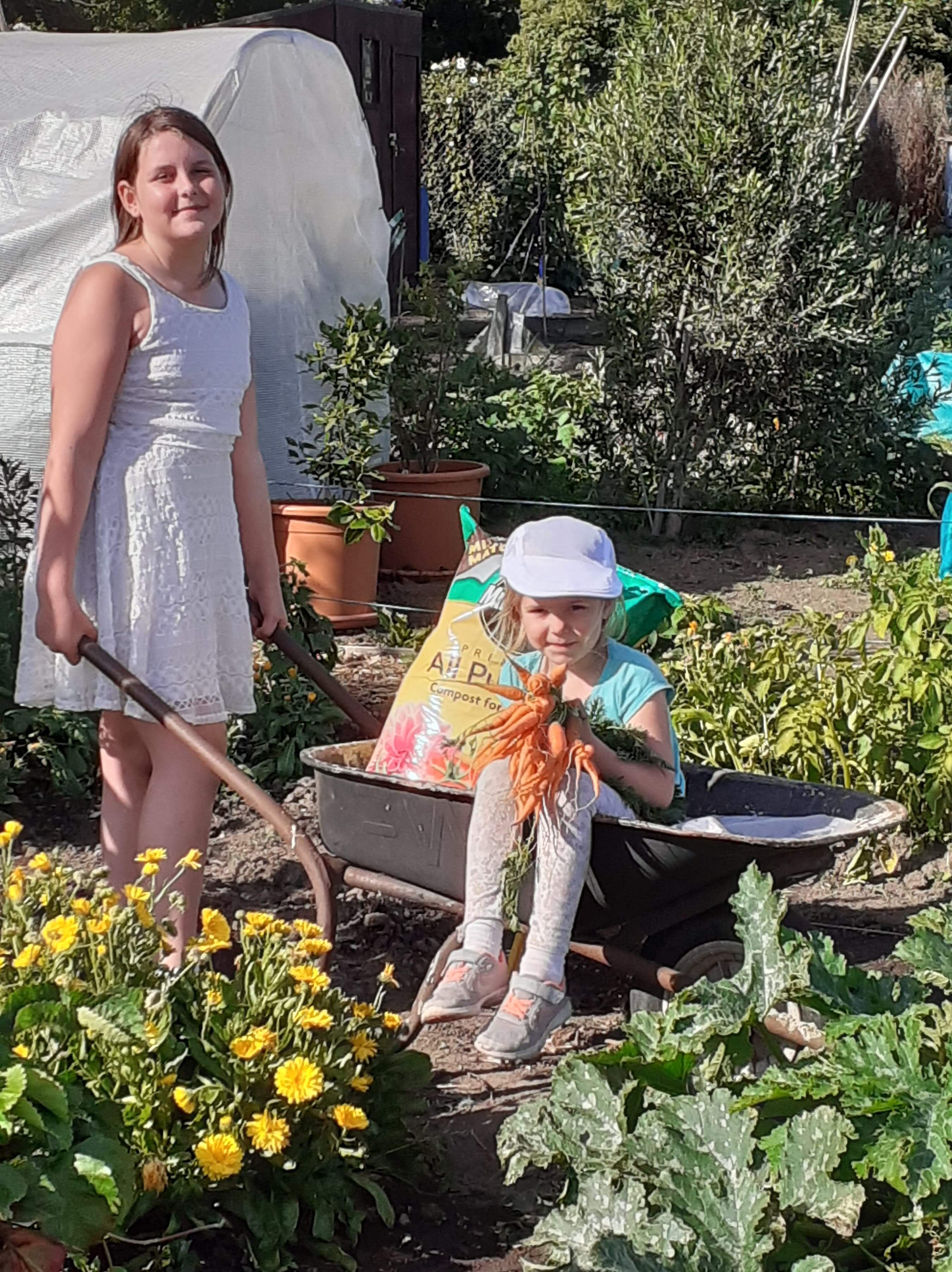
Give kids the joy and excitement of gardening and make them eager to play, grow, and learn more – and even win a cash prize to boost their efforts. As more people than ever take to their gardens during these unprecedented times, we’re receiving record entries for our Cultivation Street 2020 campaign, sponsored by Miracle Gro® and supported by the Sunday Mirror. From sensory gardens to orchards, schools nationwide are helping pupils turn under-used spaces into delightful and delicious displays. To inspire your kids to grow for gold with our Cultivation Street contest, I’m sharing four of this year’s stand-out entries so far...
Vibrant and colourful flowers can cheer us up and add playfulness to a space. The jolly flowers of Antirrhinum (snapdragons, pictured below) get their name from flowers that look like a dragon’s mouth. When you squeeze the neck, it snaps just like a dragon, so these are sure to get little ones’ imaginations going. The lively golden-yellow of marigolds in a sunny or partially shaded spot will also bring a sense of energy and enthusiasm to the garden.

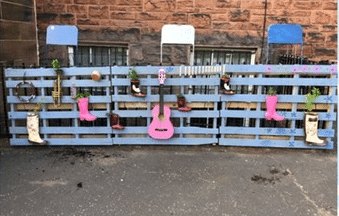
Elmvale Primary School in Glasgow has used the past few months to transform their once concretesurrounded school. Its new garden is packed with raised beds, large tractor tyres and a music area. Turning their garden into a sensory haven, they have grown bright colourful plants in recycled tractor tyres, with the central piece a sunflower. Children are fascinated by the height they reach and how the flower head follows the sun. Teacher Allan Lynn explained: “We also incorporated plants such as mint, chocolate mint, apple mint, lemon thyme and used pine wood chippings to appeal to those with autism and sensory processing issues.”
The wonderful world of wildlife fills children with a sense of curiosity and inviting creatures to the garden teaches them about eco-systems right under their noses. There are plenty of ways to incorporate habitats and plants that birds, bees and beneficial insects love, which will keep them coming back for more. One of my all-time favourite plants is Buddleja davidii (butterfly bush) which has sprays of purple, fragrant flowers that are perfect for pollinators. Planted in well-drained soil in a sunny or partially shaded spot, they thrive, attracting plenty of butterflies.
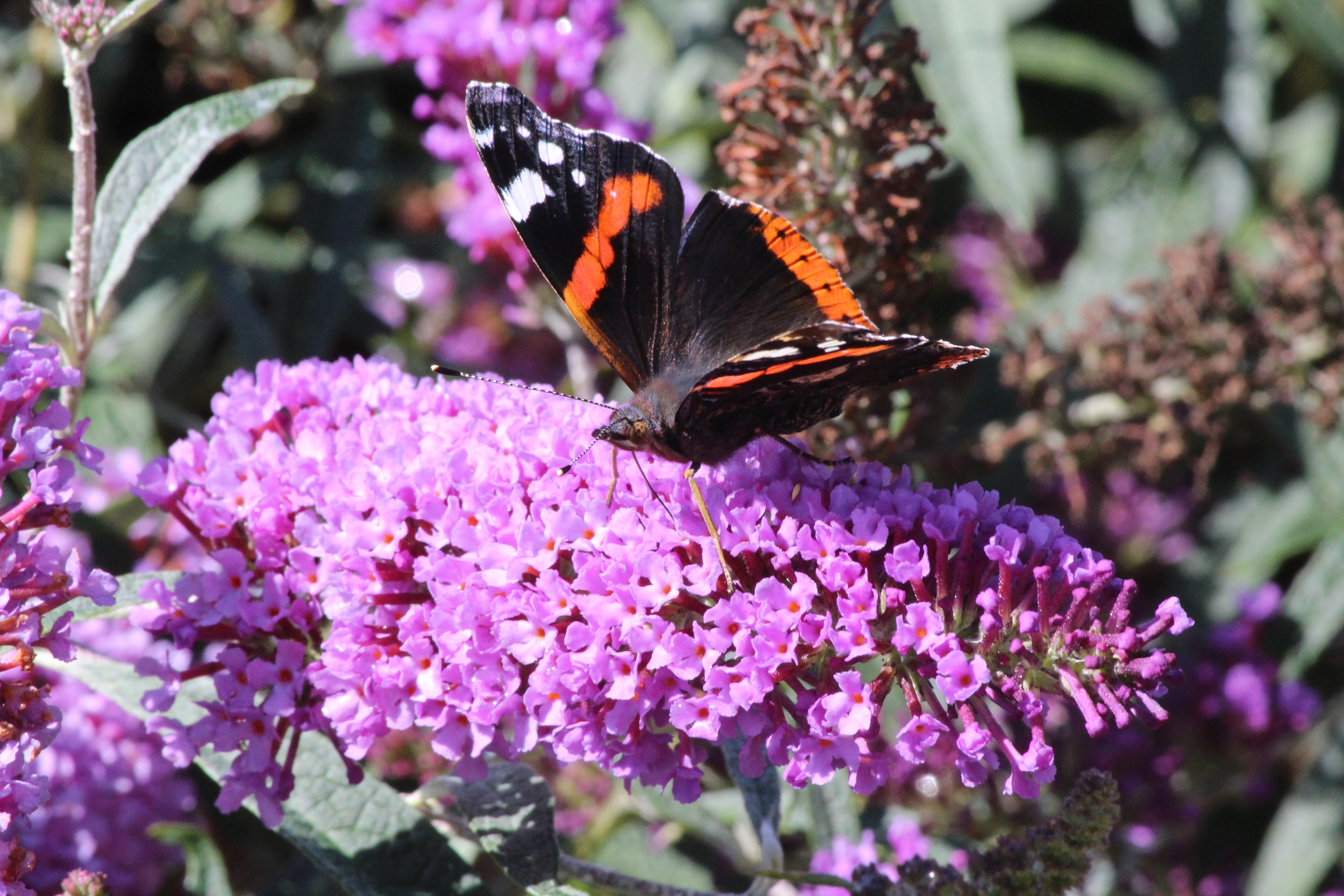
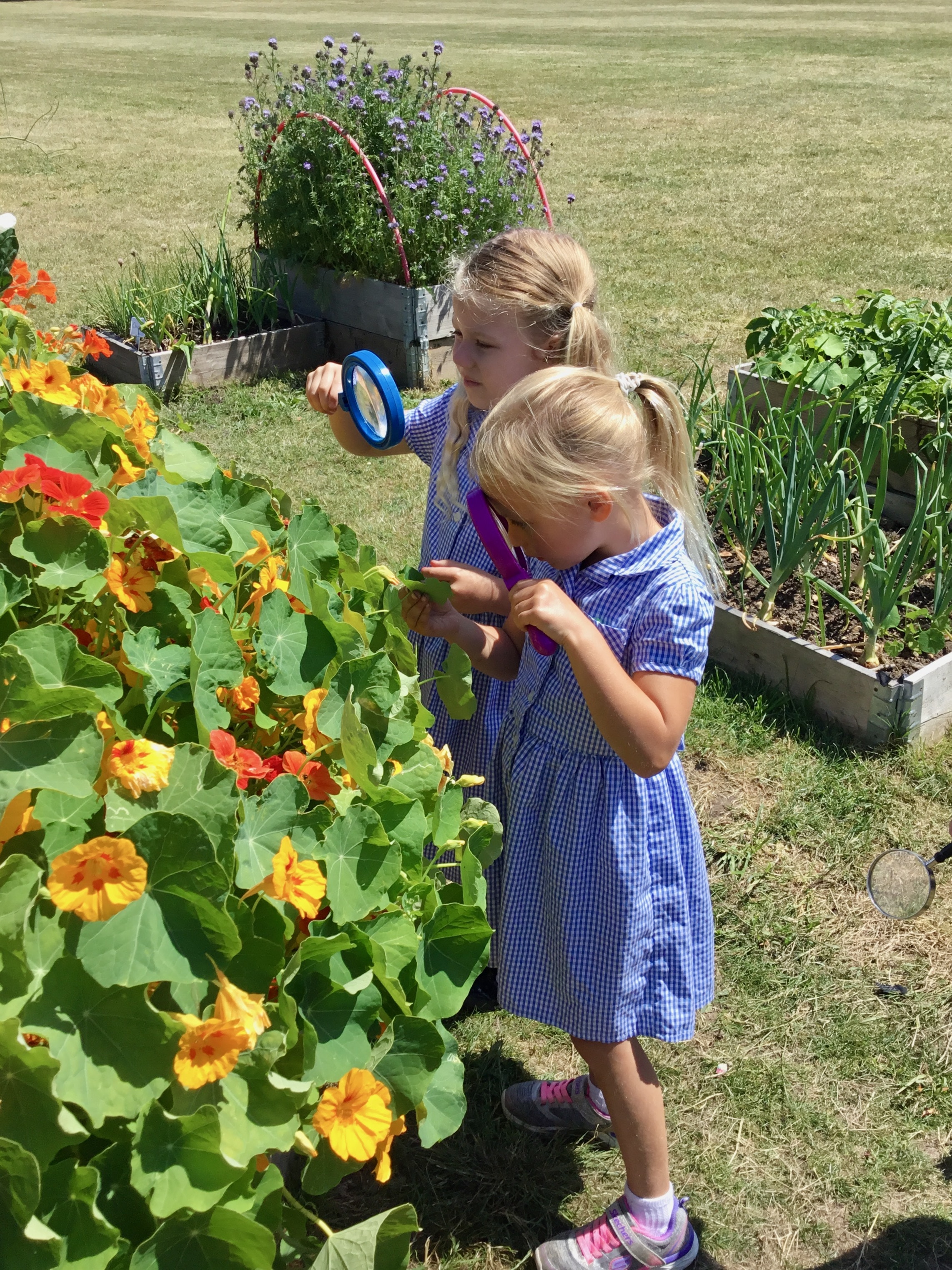
St Albans CE Primary School in Hampshire know all about attracting pollinators, having created a range of habitats for wildlife. Hoping to encourage green behaviours they focused a lot of their attention on improving their site for pollinating insects like bees and butterflies with mini garden areas, which with their own purpose, attracts a variety of wildlife. Their wildlife pond features a log mound and stumpery, placed to attract toads, newts and slow worms. They also have an amazing insect hotel which the children built, and they planted trees strategically close together to attract a variety of birds. Julie Newman, outdoor educator at St Albans Primary, said, ‘During closure, this is the space where children chose to eat lunch, surrounded by birdsong and dancing bees and butterflies. It works a magic on the soul that is hard to put down in words’.
Growing veg is a great way to educate kids on where food comes from. Their enthusiasm, wonder and fulfilment at growing something in their garden to then pick and eat will get them asking some great educational questions.
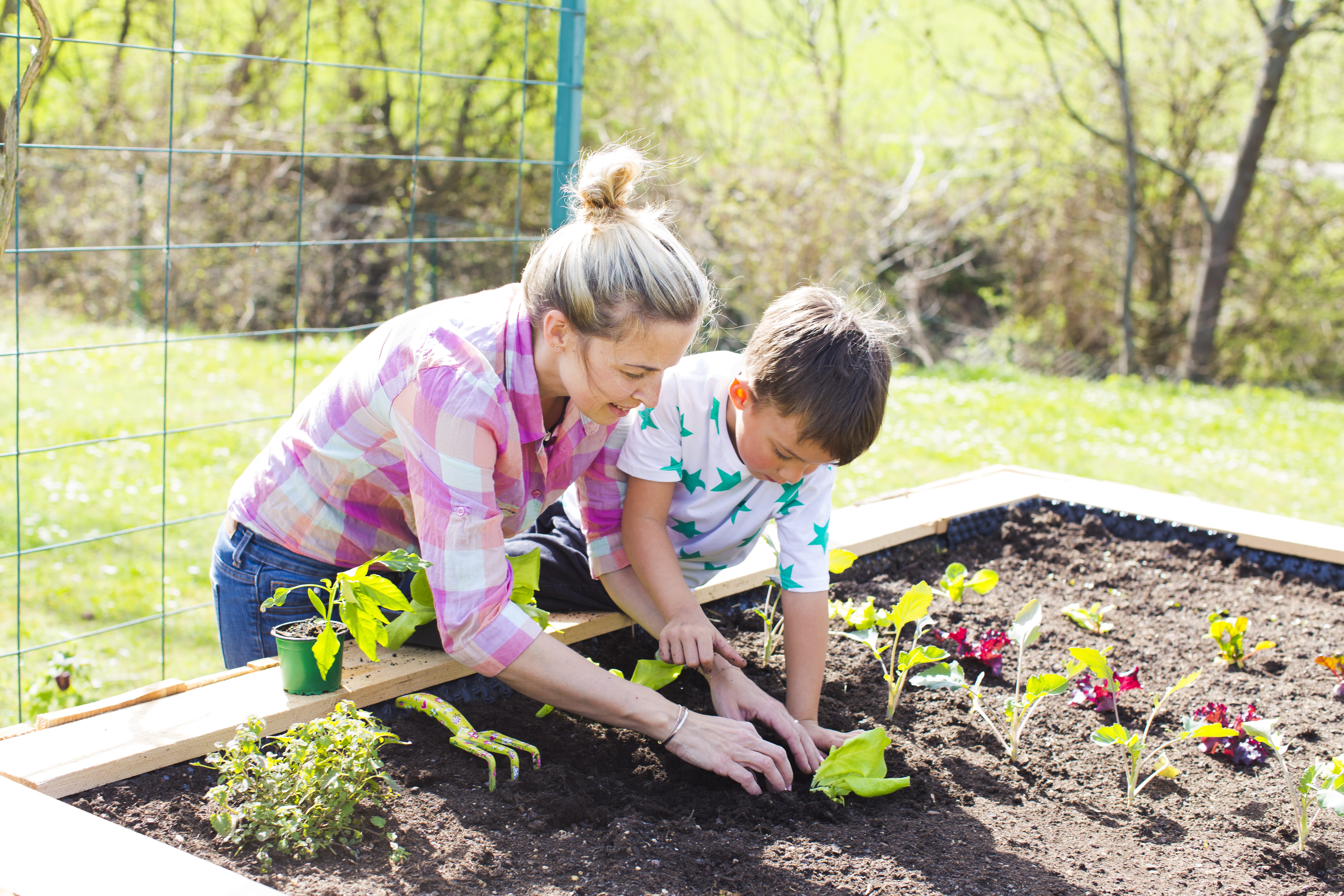
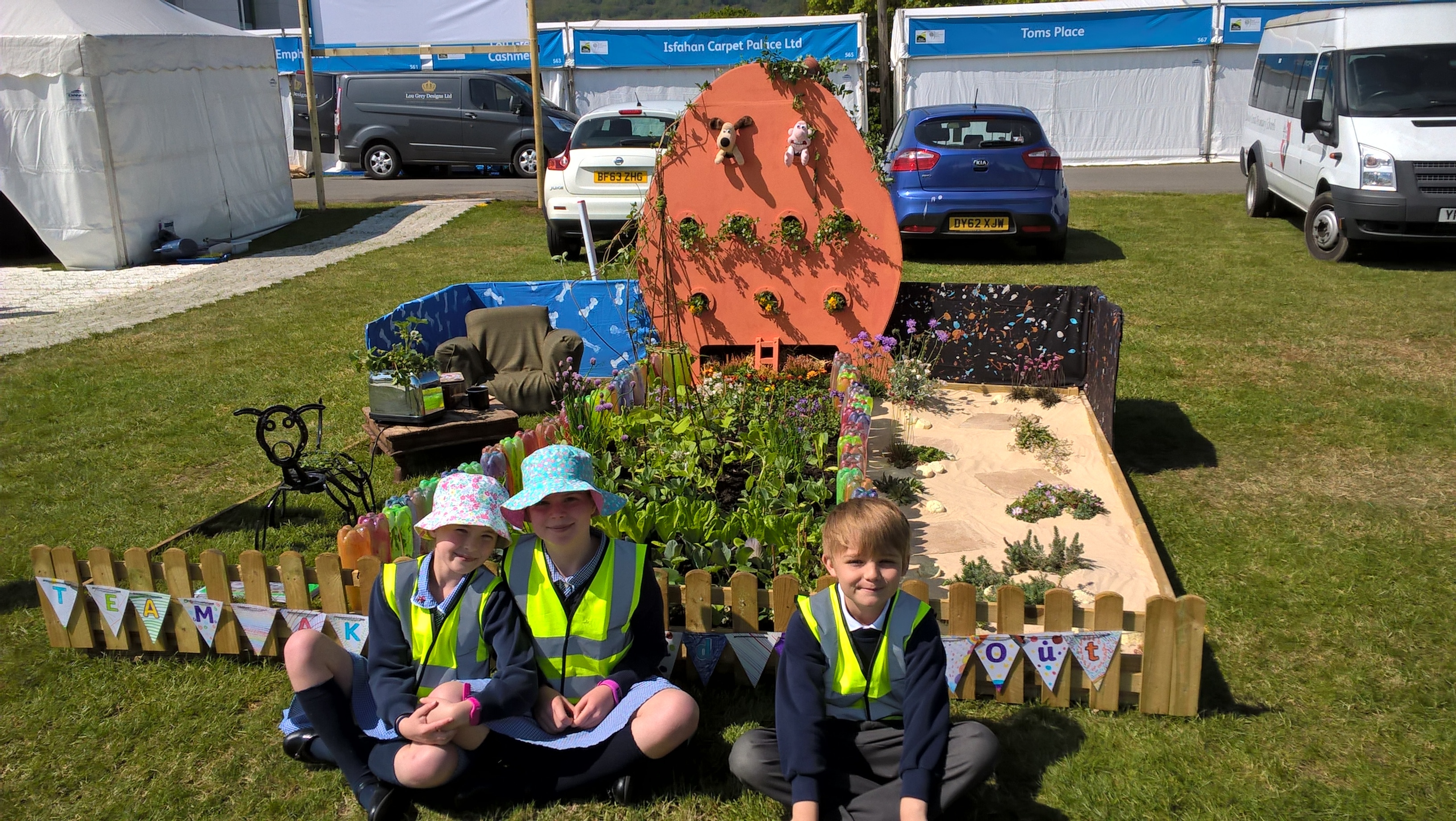
Aston Keynes C of E Primary in Swindon, Wilts, covers all bases with kitchen delights, including a herb garden, fruit trees and vegetable beds. This year pupils have grown more than ten buckets of potatoes and, pre-lockdown, were selling leftover veg to a pub. Teacher Stuart Jackson gives them free rein. “ I let the children sow whatever they want,” he says. “We believe they must lead. The adults are just there for support.”
It’s not just school gardens that encourage children getting involved in community gardens is a great way for them to engage and share their energy with people who need it most. Kids help out at community garden Cultivation Street entry Lost the Plot in Dover, Kent. This amazing support group includes survivors of depression, bipolar disorder and anxiety, and their children. Founder Tracy Carr grew up on a farm shares her wide knowledge with volunteers. It’s a welcoming space and kids have their own corner, complete with a pond and hedgehog haven. An introduction to the garden and nature like this instils kids with senses of achievement and responsibility to nurture and care for plants and wildlife which will in turn benefit their own wellbeing as they grow older
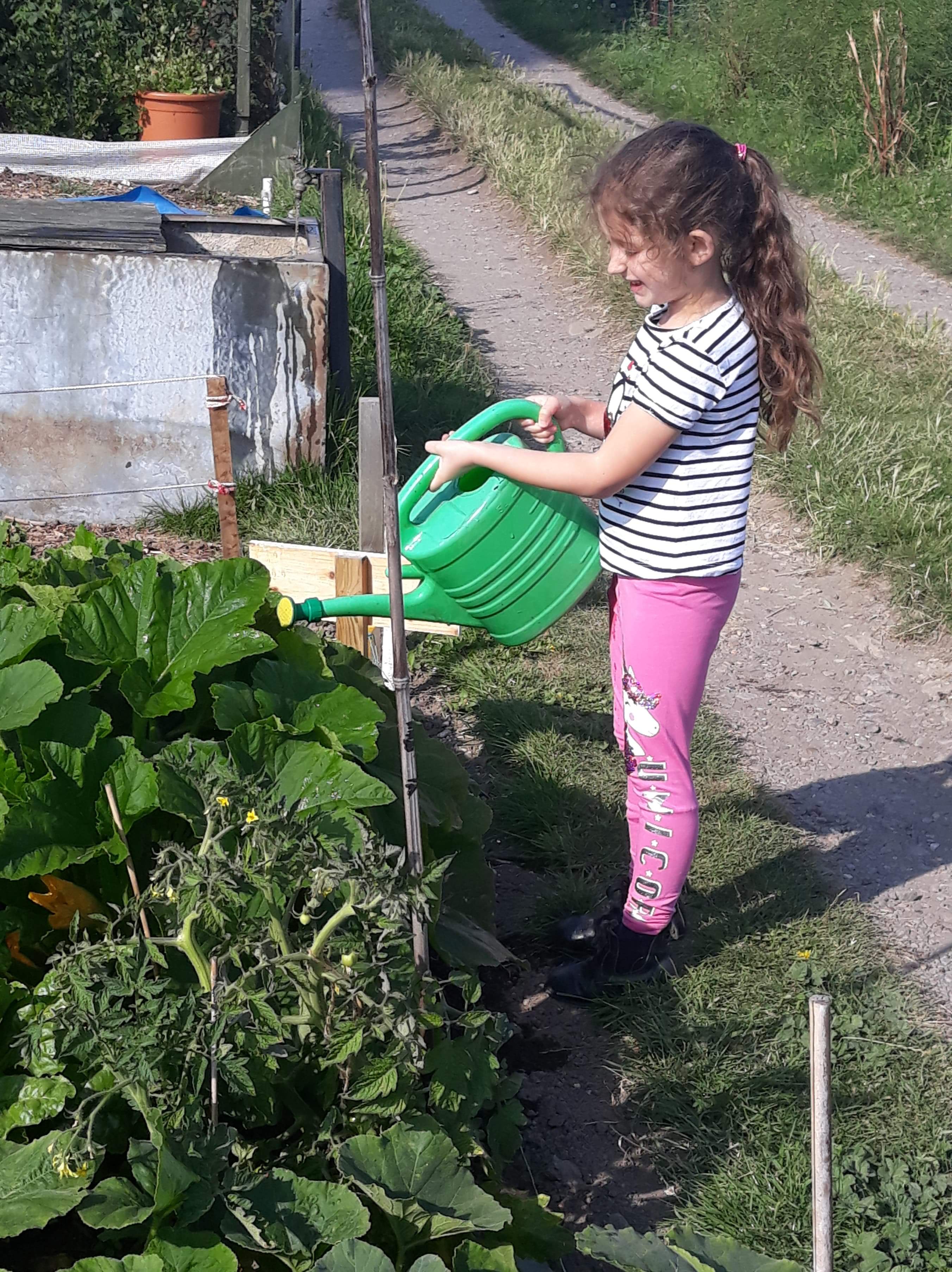
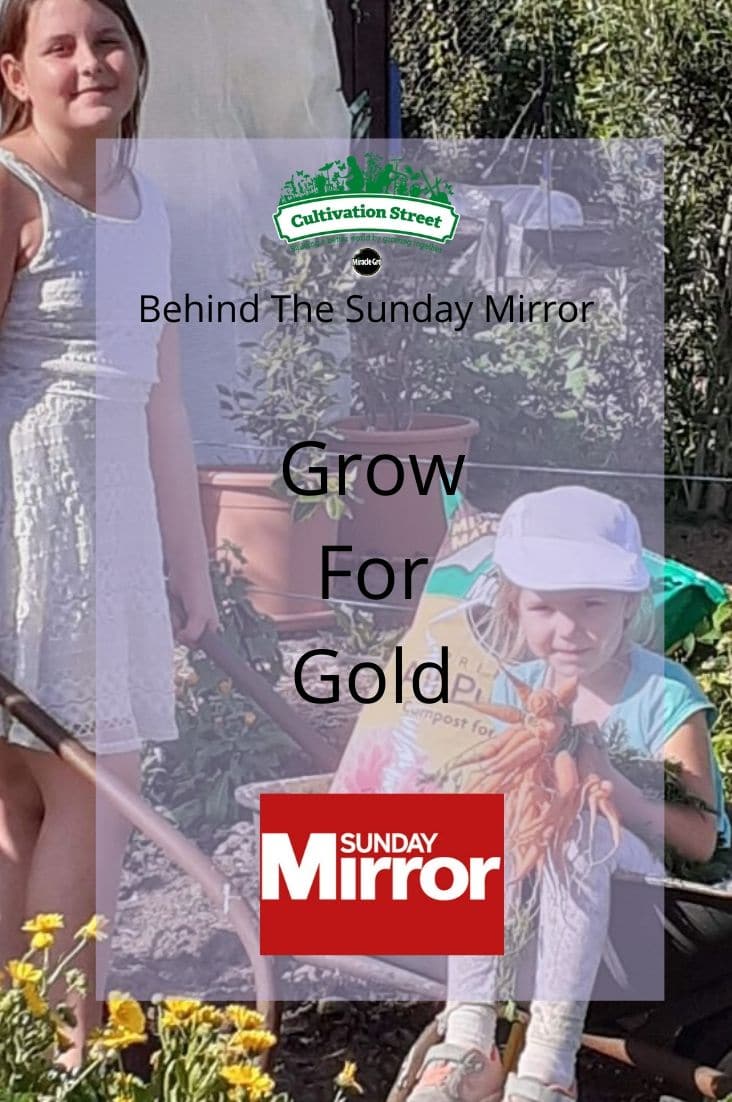
To Enter Cultivation Street 2020 click the link below!!!

